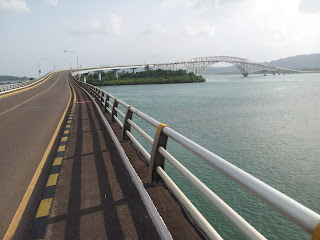
For the second time, China cut the exploration cable of PetroVietnam with Joint Exploration of Vietnam and India in Vietnam's 200 Nautical Miles Excusive Economic Zone. Last cutting of cable happened last year
Dispute Flares Over Energy in Vietnam's East Sea Exclusive Economic Zone
BEIJING — China and two of its neighbors, Vietnam and India, were locked in a new dispute on Tuesday over energy exploration in the West Philippine Sea (South China Sea), a signal that Beijing plans to continue its hard line in the increasingly contentious waterway.
Vietnam accused a Chinese fishing boat of cutting a seismic cable attached to one of its vessels exploring for oil and gas near the Gulf of Tonkin, an act apparently intended to inhibit Vietnam from pursuing energy deposits.
In retaliation, Vietnam said Tuesday that it would send out new patrols, which would include the marine police, to guard against increasing encroachment by Chinese fishing boats in the West Philippine Sea (South China Sea). India, which operates several joint ventures with Vietnam's national energy company, Petro Vietnam, said it would consider sending navy vessels to protect its interests in the West Philippine Sea (South China Sea).
The latest episode follows an announcement by Hainan Province in southern China last week that Chinese vessels would board and search ships in contested areas of the waterway, which includes vital shipping lanes through which more than a third of global trade moves.
The new tensions among China, Vietnam and India illustrate in stark terms the competition in the West Philippine Sea (South China Sea) for what are believed to be sizable deposits of oil and gas.
Some energy experts in China see the sea as an important new energy frontier close to home that could make China less dependent on its huge oil imports from the Middle East.
On Monday, China's National Energy Administration named the West Philippine Sea (South China Sea) as the main offshore site for natural gas production. Within two years, China aims to produce 150 billion cubic meters of natural gas fields in the sea, a significant increase from the 20 billion cubic meters produced so far, the agency said.
Earlier this year, China's third-largest energy company, the state-owned China National Offshore Oil Corporation, began drilling with a rig in deep water in non-disputed waters off the southern coast of China.
The escalation in the West Philippine Sea (South China Sea) comes less than a month after Xi Jinping took office as China's leader. Mr. Xi appears to have taken a particular interest in the West Philippine Sea (South China Sea) and the serious dispute between China and Japan over the islands known as Diaoyu in China and as Senkaku in Japan. Whether any of China's most recent actions in the West Philippine Sea (South China Sea) were associated with Mr. Xi was not clear.
But Mr. Xi does lead a small group of policy makers clustered in the Maritime Rights Office, which serves to coordinate agencies within China, according to Zhu Feng, a professor of international relations at Peking University, and other Chinese experts. The unit is part of the office of the Foreign Affairs Leading Small Group, Mr. Zhu said. The leading small group, now headed by Mr. Xi, is widely believed to be China's central policy-making group.
China's Foreign Ministry reiterated on Tuesday (December 4, 2012) that China opposed oil and gas development by other countries in disputed waters of the sea. China maintains that it has "undisputed" sovereignty over the West Philippine Sea (South China Sea), and that only China is allowed to develop the energy resources.
"We hope that concerned countries respect China's position and rights," said the Foreign Ministry spokesman, Hong Lei.
Vietnam, which has long been wary of China but enjoys a relationship through its governing Communist Party, summoned the Chinese ambassador on Monday to protest the cutting of the seismic cable, the Vietnamese press reported.
A Web site run by Petro Vietnam, the oil company, reported that the company's exploration vessel Binh Minh 02 had its seismic cable severed by a Chinese fishing vessel last Friday. In May 2011, the Vietnamese authorities said a similar cable of the Binh Minh 02 was cut by three Chinese surveillance ships, resulting in weeks of anti-China protests in Hanoi.
In its decree on the new patrols, Vietnam said that civilian ships, supported by marine police and a border force, would be deployed starting next month to stop foreign vessels that violate fishing laws in waters claimed by Vietnam.
A senior official of Petro Vietnam, Pham Viet Dung, was quoted in the Vietnamese news media as saying that large numbers of Chinese fishing boats, many of them substantial vessels, had recently entered waters claimed by Vietnam. The fishing vessels interfered with the operations of the oil company, he said.
India, whose state-run oil company, the Oil and Natural Gas Corporation, has a 45 percent interest in exploration with Petro Vietnam, also reacted strongly.
The head of the Indian Navy, Admiral D.K. Joshi, said that India was prepared to send navy vessels to protect its interests in the sea. "Now, are we preparing for it? Are we having exercises of that nature? The short answer is 'yes,' " Admiral Joshi told reporters in India.
The most recent moves by China in the West Philippine Sea (South China Sea) have not won total support at home. Mr. Zhu, the professor, said he did not believe that China had become more assertive in the West Philippine Sea (South China Sea).
But, he said, "The cable cutting is really unfriendly."
Vietnam Adds Sea Patrols Amid Tensions With China
Vietnam is adding new patrols to protect its fishing grounds in the West Philippine Sea (South China Sea) after the country's state-run energy giant accused Chinese vessels of sabotaging one of its boats in the disputed waters.
State media said Tuesday the "maritime surveillance force" will have the authority to arrest crews and impose fines on foreign vessels within Vietnam's declared exclusive 370-kilometer economic zone. It will be deployed on January 25.
It comes a day after PetroVietnam said several Chinese fishing vessels cut the cables of one of its exploration vessels in the West Philippine Sea (South China Sea) last week. The state-run company said it later repaired the cable, but called the act a "blatant violation of Vietnamese waters."
China and Vietnam are in a long-running dispute over their competing claims in the South China Sea, and small-scale clashes occasionally break out between patrol boats or fishing vessels.
Vietnam, the Philippines and other East Asian nations accuse China of increasing aggressiveness in defending its claims in the South China Sea. China claims nearly all of the 3.5 million square-kilometer area, an important shipping route that also contains potential energy deposits.
Last week, regional tensions were raised after China announced new rules authorizing police in southern Hainan province to board and seize foreign ships it says are illegally entering its territory.
Regional power India also says it is ready to deploy naval vessels to protect its oil-exploration interests the South China Sea. Indian Navy Chief Admiral D.K. Joshi said Monday that his ships have the mandate to defend his country's interests in the area when necessary.
India does not have competing claims with China to the area, but its state-run Oil and Natural Gas Corporation (ONGC) has a stake in a gas field off the coast of Vietnam.
Rory Medcalf of the Lowy Institute for International Policy says Admiral Joshi's remarks should not be seen as an overt challenge to Beijing.
"I think his remarks are primarily aimed at a domestic Indian audience, to assure them of India's naval capability and its willingness to protect its interests," he said. "I don't think, however, that India is picking a fight over this."
Medcalf says he doubts whether India would act unilaterally in the South China Sea, saying it would have difficulty in sustaining any military deployments there.
But Australian National University defense analyst John Blaxland predicts that regional tensions will continue to rise in the West Philippine Sea (South China Sea), and Beijing is not likely to back down.
"The oil and gas resources that are understood to be underneath the South China Sea are potentially massive. And for a resource-starved country like China, they are too important for these little countries in Southeast Asia take from them," said Blaxland.
With reports from The New York Times and Voice of America
























